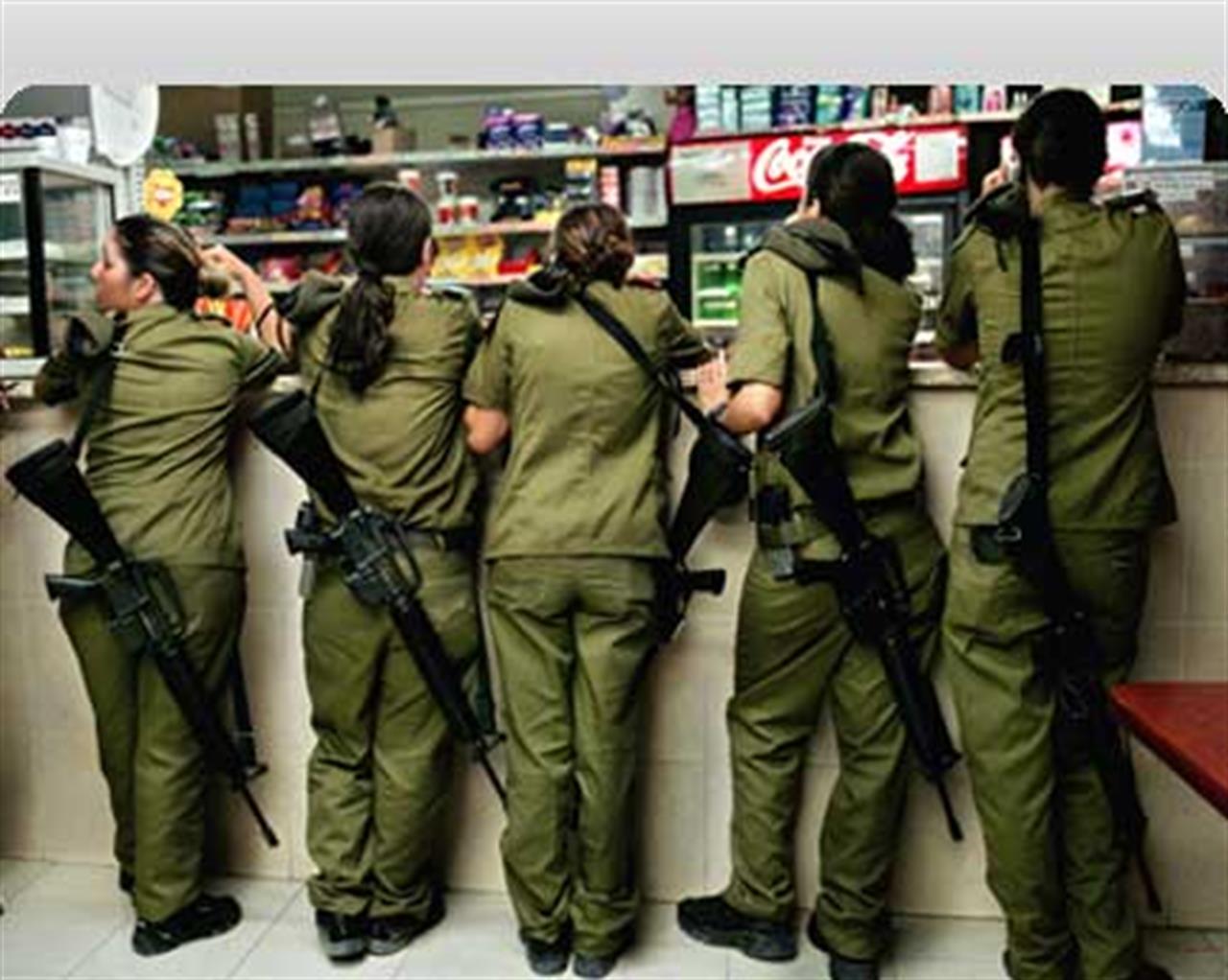King David’s tomb, in the heart of Jerusalem. The young man, who has just come of age, is praying in the traditional Jewish way: wearing a kippah, (skullcap) he prays reciting the holy Torah, moving his body in a waving motion, his feet firmly planted in the ground. One of his hands is placed, lightly, on the tomb. In the other he holds an M16 rifle slung over his shoulder. Yes, an M16 rifle, the same rifle that millions of common soldiers all over the world handle, including Israel’s armed forces.
Ariel, the young man, is, in fact, wearing the Idf (Israel defence forces) brown uniform. He is on leave and visiting King David’s tomb with a group of fellow soldiers. But he mustn’t ever let go of his gun: he has to carry it with him at every moment of the three years (two for girls) of compulsory military service. Even when during prayer. If he doesn’t he will be made to pay an expensive fine and confined to barracks for several days.
Once he has finished praying he explains that his weapon’s safety catch is inserted. Thank goodness! “You know, at the beginning it’s not easy to get used to always carrying a rifle, but then it becomes part of you”.And then he adds: “Military service is a wonderful occasion to make new friends, sometimes you can meet the girl of your life”. But isn’t normal life enough for that? “Yes, but three years are a long time. And when they get here they are in the full bloom of youth”, he answers.
The army, the world’s youngest, hosts at least 100 thousand new entries a year, 40% of whom are girls. This is perhaps one of the memories that most stick in the minds of those who visit troubled Israel.
Smiles and fears
In Israel you meet soldiers everywhere: in shops, pubs, train stations (that are literally assaulted on Thursday, when they come back home for the week-end, which in Israel is on Friday and Saturday). You most often meet them at the check points and at the gates of the infamous wall that runs through the West Bank.
Like beautiful Yoah, 19 years old, who patrols the check-point between Jerusalem and Bethlehem, holding a machine-gun in one hand and a mobile phone to send sms’ in the other. “There could be bombs anywhere” she explains smiling. There are plenty of girls like Yoah on You Tube: they laugh in video clips, play football when check-points are closed following the orders of a senior officer, they talk about their lives in the barracks.
If you ask them for a photo, in person, they pose for the camera. “Can you show me the picture?”, Hanna, 20 years old, asks after the shot. “But we are not all happy to carry out military service”, admits Liron, 22, who finished the military service 5 months ago. “I didn’t have any particular problems with the military service, but one of my friends pleaded for release because he was going mad”.
He is not the only one. Many people, after the first impact with various aspects of the service, like “the very strict controls at check-points and night raids in Palestinian villages” go crazy. “That’s why when people finish their service they often travel for months abroad, to regain their peace of mind”, explains Liron. The things these young people see and do often remain impressed upon their minds. The exemption figures speak clearly: last year was a record year, 28% of those who could have chose not to leave.
In Tel Aviv, the modern and “European” capital, the figures rise to 35%. For want of conscientious objection, that is still today punished with imprisonment, the justification for many – even those who are not too orthodox – Jewish people, is religious, which is the only justification that Israel accepts.
Mother land, my love
For the majority of people who enrol military service is not a waste of time. Patriotism is the rule. “It’s a remarkable growth experience, our nation is at war and needs us”. This is the refrain of these young people when you ask them why they do it. Could they be right? “Maybe they are just conditioned by a generalised brainwashing that begins when they are small: every year 800 army generals go to Israeli schools to talk about military values”, reveals Machsom Watch activist Daniela Yoel. Machsom Watch is a group of Jewish women who go round the hottest check points to defend Palestinians rights.
There is a soldier called Gilat Shalit. Born in 1986 he turned 22 in a Hamas prison on August 28 2008. In June 2006 he was kidnapped during a bloody raid – he was 19. Israel’s subsequent retaliations proved useless. At the age of 11 Gilat had written a story called The shark and the little fish. The allusion to the war his country was carrying out was clear. But he gave his story a happy end: in the end it was the shark that suggested peace to the little fish, who accepted willingly. In reality peace never happened, and a shoal of little fishes blinded by hunger one day “swallowed” a dreamy little shark who just happened to be there. With an MC16 rifle slung over his shoulder.
Translation by: Cristina Barbetta
Si può usare la Carta docente per abbonarsi a VITA?
Certo che sì! Basta emettere un buono sulla piattaforma del ministero del valore dell’abbonamento che si intende acquistare (1 anno carta + digital a 80€ o 1 anno digital a 60€) e inviarci il codice del buono a abbonamenti@vita.it

